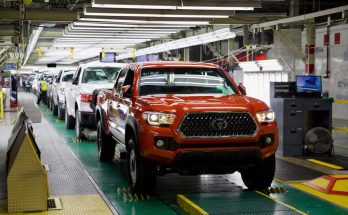By Francisco Peyret
During the last 40 years of the 20th century, Latin America experienced a series of coups and dictatorships. These historic events had a significant impact on the life and political evolution of the region. Among the most significant cases are the following:
–Chile (1973-1990). In September 1973, the democratically elected government of Salvador Allende was overthrown in a military coup led by General Augusto Pinochet. Pinochet ruled until 1990.
–Argentina (1976-1983). In March 1976, a military coup overthrew President Isabel Perón. During the military dictatorship, known as the «Military Junta,” the dirty war in Argentina left thousands of victims.
–Brazil (1964-1985). In April 1964, the government of João Goulart was overthrown in a military coup. In 1985, the democratic transition began with the election of Tancredo Neves as president.
These events and many others have marked the recent history of Latin America. To date, the United States continues to be accused of supporting and intervening in these processes, where the intent was clearly to stop the socialist movement that reached our continent after the Cuban Revolution. These dictatorial governments were marked by censorship, political repression, and the violation of human rights. In Mexico it was different. Although we were not immune to censorship and repression, with the (Institutional Revolutionary Party) PRI government that lasted 70 years in power we had a state that applied a kind of soft dictatorship, a unique phenomenon in the world.
During the 1980s and 1990s, a wave of renewed democratic processes led by presidents such as Alan García (Peru), Fernando Collor de Mello (Brazil), Carlos Menem (Argentina), and Carlos Salinas (Mexico) led to a boom in privatizing state assets. The slogan was free trade, reducing state intervention in the economy, and attracting foreign investment to the region.
Unfortunately for Latin American countries, there was economic growth but no income distribution. The structural problems of the economies deepened, and as a consequence, since the beginning of the 21st century we have witnessed the political alternation between left and right parties, throughout all of Latin America. Even recently, in countries like Colombia and Chile, apparently with right-wing governments that seemed more stable, the left is surprisingly strong. Currently this trend is dominating much of Latin America.
Throughout this process, the construction of the Rule of Law in Latin America has been a complex process driven by waves of reforms. This process has sought to strengthen democracy and promote governance, security, and transparency. However, these reforms have not meant the cessation of the interventionism of external agents in the national governments in Latin America, but merely their adaptation to the new circumstances.
This means that we are moving from interventionism via the direct use of the armed forces to seize control of political power, to influencing the judiciary, which has led to a change in the correlation of forces within countries. Because the judiciary has not been chosen by electoral means, it has acquired a political weight that has facilitated the judicialization of politics. Currently, the courts and sentences have become political actors in state decision-making.
Latin American leaders warn of a hybrid war, a differentiated strategy adopted by the US, which is having a significant impact in Latin America. This strategy seeks to promote the geopolitical interests of the US in the region through various forms of intervention, including the manipulation of internal conflicts and the use of media campaigns to influence public opinion.
This phenomenon, known as «Lawfare», is the strategic and politicized use of the judicial and legal system, along with media smear campaigns, which have found fertile ground in the region. It has been used as a way to destabilize and weaken governments.
Here are a couple of examples:
–Dilma Rousseff was the president of Brazil from 2011-2016. In 2015, an impeachment process was carried out against her that culminated in her dismissal on August 31, 2016.
–In 2020, already in exile in Belgium, former Ecuadorian President Rafael Correa was sentenced in absentia to eight years in prison for his alleged participation in a case of political kidnapping. The ruling generated controversy and criticism at both national and international levels.
The Lawfare issue is vast.
To be continued.




